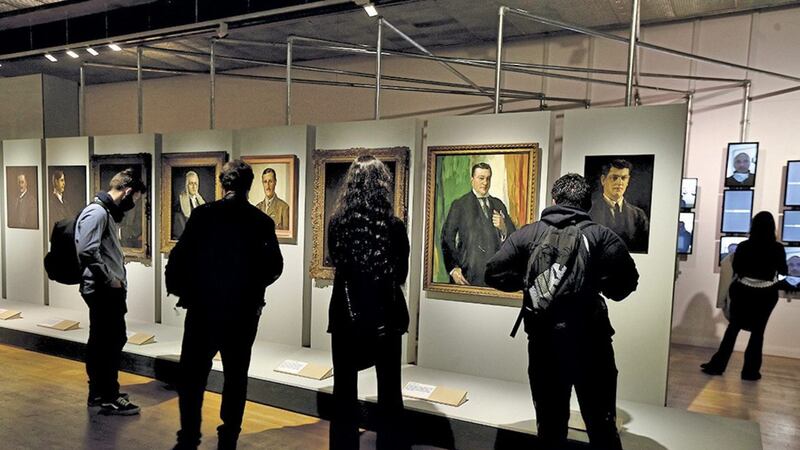If you're thinking of taking your children on a day-trip over Easter, don’t bother. According to a new study, visits to museums or art galleries do not improve pupils' GCSE results.
Researchers found that "increasing pupils' levels of cultural capital" - going on a day-trip or seeing a play to you and me - did not have an effect on grades.
"It is tempting to theorise that visits to museums or historic venues might be helpful in igniting interests in history, and that visits to the theatre might similarly cultivate learning in drama," researchers from the Universities of Sussex and Edinburgh found.
"On deeper reflection, it is difficult to plausibly describe mechanisms by which the exposure to certain extracurricular activities would influence outcomes in other school GCSE subjects."
Must every childhood experience be measured in grades? By that metric, there's no point in visiting Derry's Tower Museum or Navan Fort or W5.
Ask me how to solve a quadratic equation and I’ll look at you blankly, but ask me how the interlocking columns of the Giant’s Causeway were formed and I can talk at you for a socially unacceptable amount of time.
School day-trips should not be about grades but encouraging children to see the wider world.
While some of my trips weren't always thrilling - one involved a coach-load of us travelling around the Glens of Antrim to count the number of shops in Bushmills, Cushendall and, inexplicably, Lisnagunogue - I still remember most of them.
A P5 trip to the Ulster Museum gave me hours of joy. Finally, here was a place where I didn’t have to feign an interest in New Kids on the Block. Gone was the horror of not owning a shiny Kylie and Jason bomber jacket or the right kind of school shoes. Here, an interest in Egyptian mummies, Celtic jewellery and random bits of broken pottery was positively encouraged. Finally, those hours reading about medieval castles and drawing pictures of trebuchets paid off.
I could happily have lived in those exhibition spaces which, years before the museum was refurbished, seemed to consist of scores of dark scratchy-carpeted rooms
Egyptian mummy Takabuti had pride of place of course, but it’s the Girona treasure I remember - the beautiful jewel-studded gold salamander and a delicate ring inscribed: No Tengo Mas Que Dar Te (I have nothing more to give thee).
A dog-eared programme of the Girona exhibit, bought for 50p in the gift-shop, sat on my bookshelf for years.
Then there was the P7 trip to the Giant’s Causeway which, never mind what Dr Johnson said, is entirely worth going to see. Thousands of basalt columns! A strange rock which looks like a big shoe! Rock pools! Finn McCool! A gift shop selling scented erasers and giant pencils! I don’t think I could have been more excited if I’d wandered into Narnia.
A few years later, on another field trip to the Causeway, my geography teacher pointed at a patch of dried, cracked mud and explained how, millions of years ago, lava had cooled, contracted and cracked to form the famous hexagonal stones.
It was the kind of good teaching which helped make better sense of the world.
But I was lucky. My lovely mother - a retired teacher who can recite obscure lines from Robert Burns and W.B. Yeats, can tell you in a minute how glaciers carve out valleys, and who got very excited by the discovery of Shackleton’s Endurance shipwreck in the Antarctic earlier this month - has an interest and curiosity about the world that I hope to have in my seventies.
Grades are important of course but they aren't everything. Taking children to new places naturally opens them up to new experiences.
And you don't have to spend huge amounts of money.
The Ulster Museum and the MAC in Belfast are free. The Tower Museum in Derry costs £1 for a child and £2 for an adult.
The American poet Maggie Smith once wrote: "The world is at least fifty per cent terrible, and that’s a conservative estimate, though I keep this from my children."
At a time when many children are struggling to make sense of a frightening world of war, pandemics and poverty, day-trips - whether it's to a museum or that field down the road where the whins are in bloom - are even more essential.








